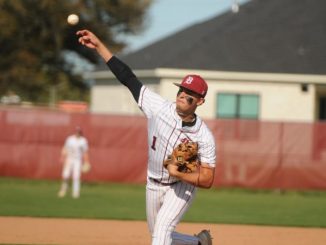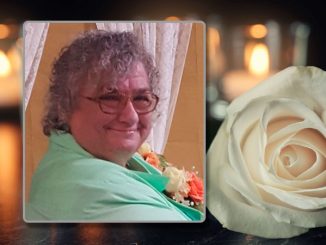
When Gerner Matherne was honored at the LSU-Georgia baseball game as part of its Soldier Salute, he remembered a lot about the Korean War but mostly the names of the buddies who didn’t come back.It was nearly so for Matherne – three times.
The Paradis resident recalled holding his rifle walking behind a tank when the enemy tossed a grenade that he watched bounce off the tank and land three feet from him where it exploded.
“We were spearheading the recapturing of Seoul,” Matherne said of his military service in the Korean War. “I went to the hospital because my arm got infected and I got operated on.”
The shrapnel in his arm was first treated at a MASH unit and then he was shipped to a hospital in Japan, where he stayed for about a month.
This was the first time he was nearly killed in the war.
The second time, his 7th Infantry Division was taking another hill in Korea when another grenade rolled the hill toward him. It also exploded and sent shrapnel in both of his legs. He went to a first aid hospital because they were superficial wounds and was back on the front line in a couple of weeks.
As they crossed the 38th parallel, somewhere in Korea in an attempt to take another hill, he was shot in the left foot. This wound put him in the hospital for another month. Upon his release, he deployed again to Korea.
Each experience is marked by three Purple Heart medals he received for his bravery.
In the hills of Korea, Matherne also recounted how its weather affected him.
“You were either hot or cold,” he said. “I had frost bite in both my feet and nearly lost them. If I had stayed another 24 hours in the foxhole I would have lost both feet.”
These injuries also put him in the hospital for another month.
“I stayed in bed for about two weeks,” he said. “I couldn’t put my feet down.”
Overall, Matherne served four years in the infantry.
“I was in the frontline for eight months,” he said. His infantry unit crossed the 38th parallel three times.
Matherne also fought in the Battle of Inchon that resulted in a decisive victory and reversal in favor of the United Nations. The operation involved about 75,000 troops and 261 naval vessels that led to the recapture of the South Korean capital of Seoul two weeks later.
All this was a very different world for the country boy who had enlisted in the Army to get off the farm in Paulina, La., where he was born and raised. He was tired of school, too, having dropped out at 11th grade. It seemed a logical move because it was peacetime, but that soon changed.
“I never imagined I would nearly lose my life three times,” he said.
Matherne did his basic training at Fort Jackson in South Caroline and then went to Japan two years to train as an infantryman. It was during this time that war was declared with Korea and he went to the Battle of Inchon. After his wartime service, he was shipped to Fort Hood, Texas, to train young soldiers and was then promoted to sergeant. Three months later, in May 1952, when the Army would not guarantee that he wouldn’t serve in another war, he took an honorable discharge.
Reflecting on his experiences, Matherne readily shared what he learned about war.
“You don’t want war in the U.S. It’s better to fight overseas,” he said. “It’s too destructive, and freedom is not free.”
And the loss of buddies he trained with in Japan stays with him to this day.
“They were like brothers to me,” said Matherne, who fought back tears. “To see a guy you knew for years and lived side by side with lost is very hard. I still got tears coming out my eyes.”
Matherne said war is only about killing and it’s nothing anyone wants to go through.
“We have to do it or we wouldn’t be free. A lot of people today don’t realize that those people who died saved this country. I’m not a hero. The heroes are the ones who stayed out there. I just did my job.”





Be the first to comment